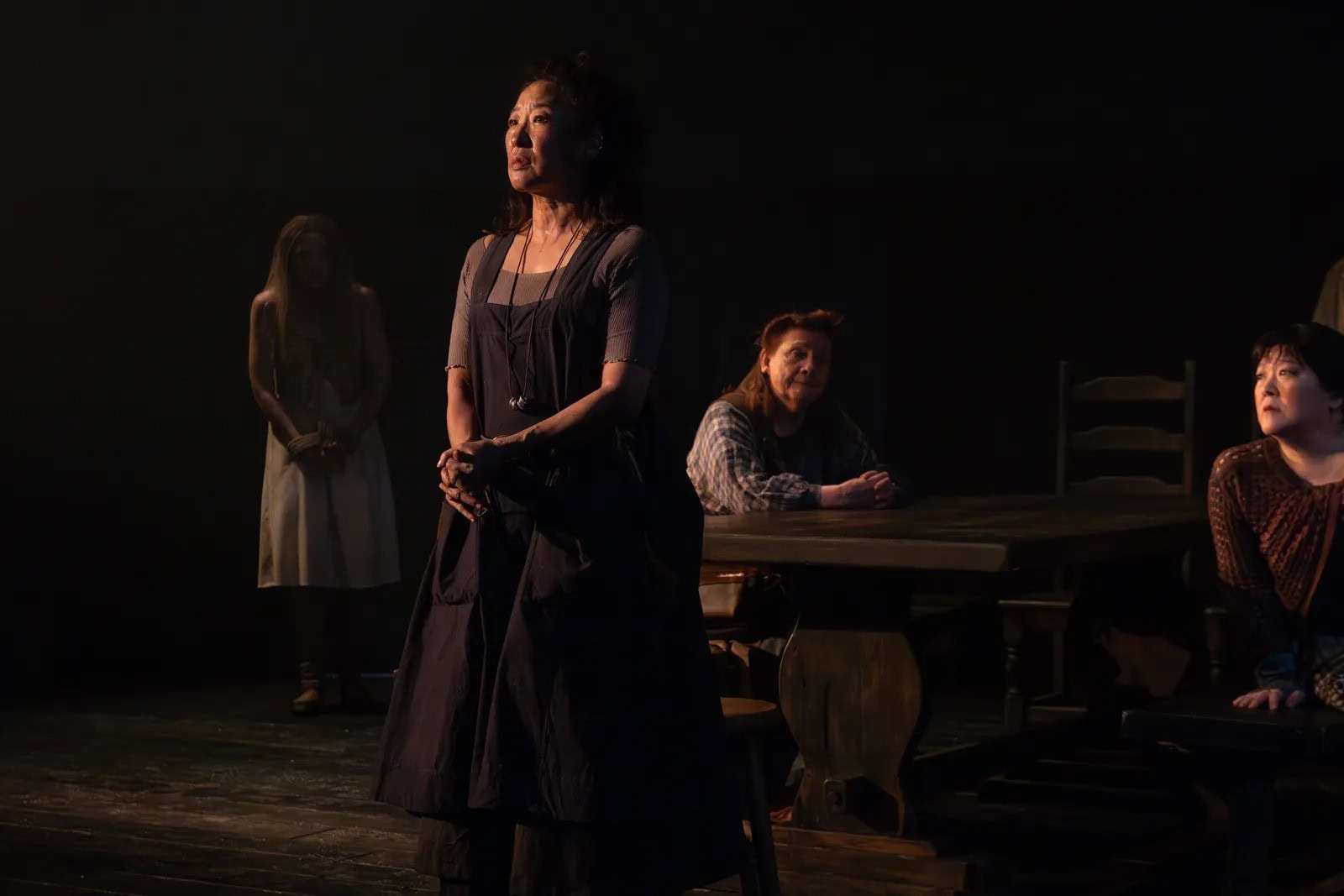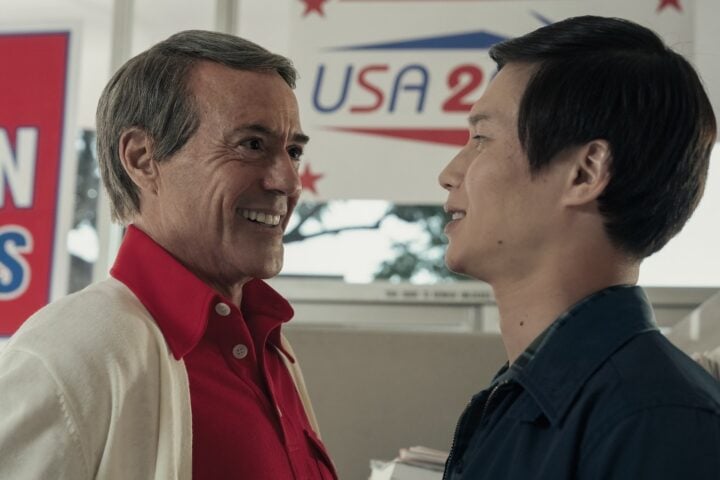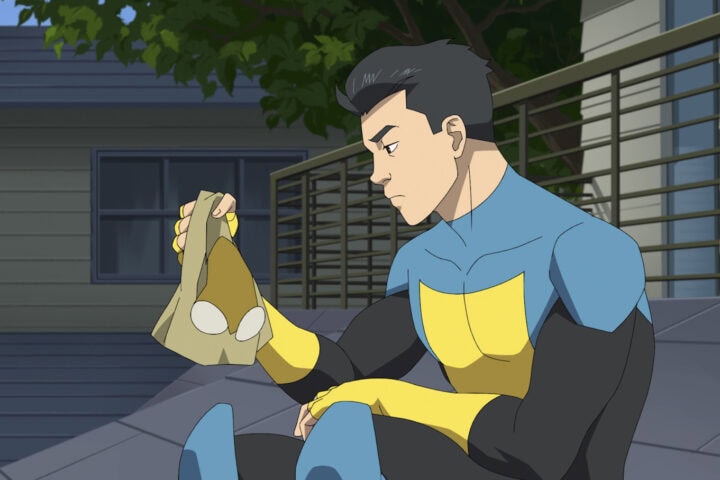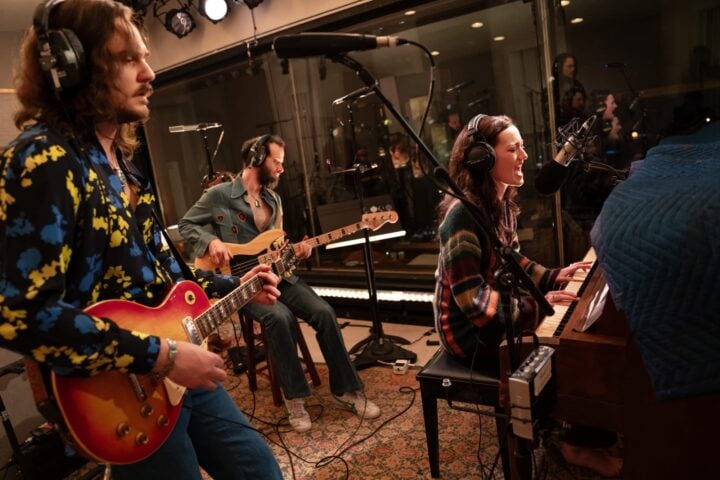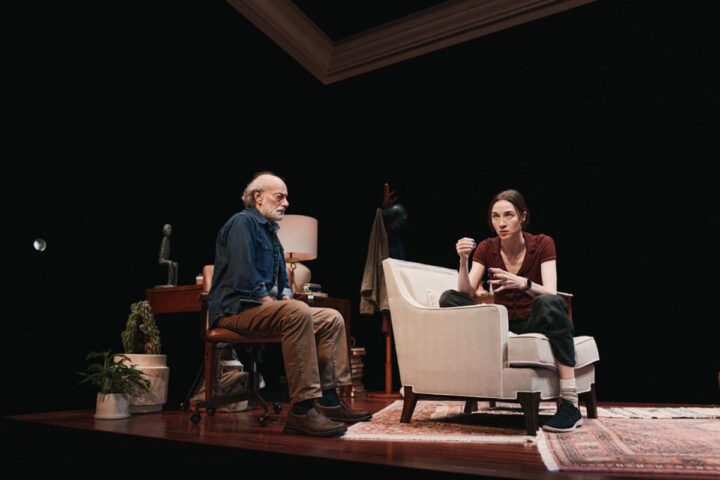There’s a great beating heart at the center of Lucy Kirkwood’s The Welkin, making its American debut after an ill-timed January 2020 premiere at London’s National Theatre. Fans of Sandra Oh’s masterful work on Killing Eve and Grey’s Anatomy won’t be surprised to find her bringing the same kind of acerbic warmth and casually razor-sharp intelligence that Eve Polastri and Dr. Cristina Yang shared to Elizabeth Luke, an 18th-century English midwife who finds herself wrapped up in a murder trial. Even churning butter, which Oh approaches with a ferocious purposefulness, Lizzy still has lots of bite.
The accused is Sally Poppy (Haley Wong), a maid who skipped town with a ruffian only to come back home to her husband drenched in the blood of the young rich girl she used to serve. She’s already been found guilty of murder, but she’s “pled the belly.” If a group of 12 mothers determine that Sally is indeed pregnant, her life will be spared. If she’s lying, she’ll hang.
Lizzy once delivered the babies of most of the women on this mostly unwilling jury, but she brought Sally into the world, too, and she arrives with the intention of pushing for mercy in the dim, damp cell where the women will deliberate. Kirkwood, a tricksy playwright known for coyly plotted works like The Children and her recent Rapture (marketed as a made-up play with a made-up author’s name), also has a few surprises up her sleeve here. Despite the 12 Angry Men-like setup, there’s nothing anonymous about these women in this tight-knit community, and Kirkwood is particularly invested in teasing out the relationships between them and the secrets they share, some of which may impact their ultimate vote on Sally’s pregnancy.
With her gory and claustrophobic storytelling, Kirkwood sometimes evokes the bloody grin of a Martin McDonagh dark comedy mixed with the mythic scale of a Jez Butterworth epic like The Ferryman. Director Sarah Benson delivers a banquet of spooky, suspenseful effects, courtesy of Stacey Derosier’s narrowing lighting, Palmer Hefferan’s harrowing sound design, and even some startling pyrotechnic effects from Jeremy Chernick. But Benson, who’s typically drawn to pieces like Teeth (adapted from the 2007 horror film of the same name) and Fairview that splinter structurally and tilt toward chaos, hasn’t united the cast around a shared vision in the same way, and uneven performances distract from the potential tautness of Kirkwood’s construction.
The decision not to have the cast speak with British accents is clearly a nod toward universality—this may be America in 1759, but this could also be America now—though the inconsistent approach to vocal delivery fractures the sense that these mothers belong to the same world as each other. Some of the women affect a Colonial-era air while others sound more like TikTokers. (Ironically, criticism of the London production often focused on the attempted verisimilitude of period-appropriate Suffolk accents that made the performers difficult to understand.)
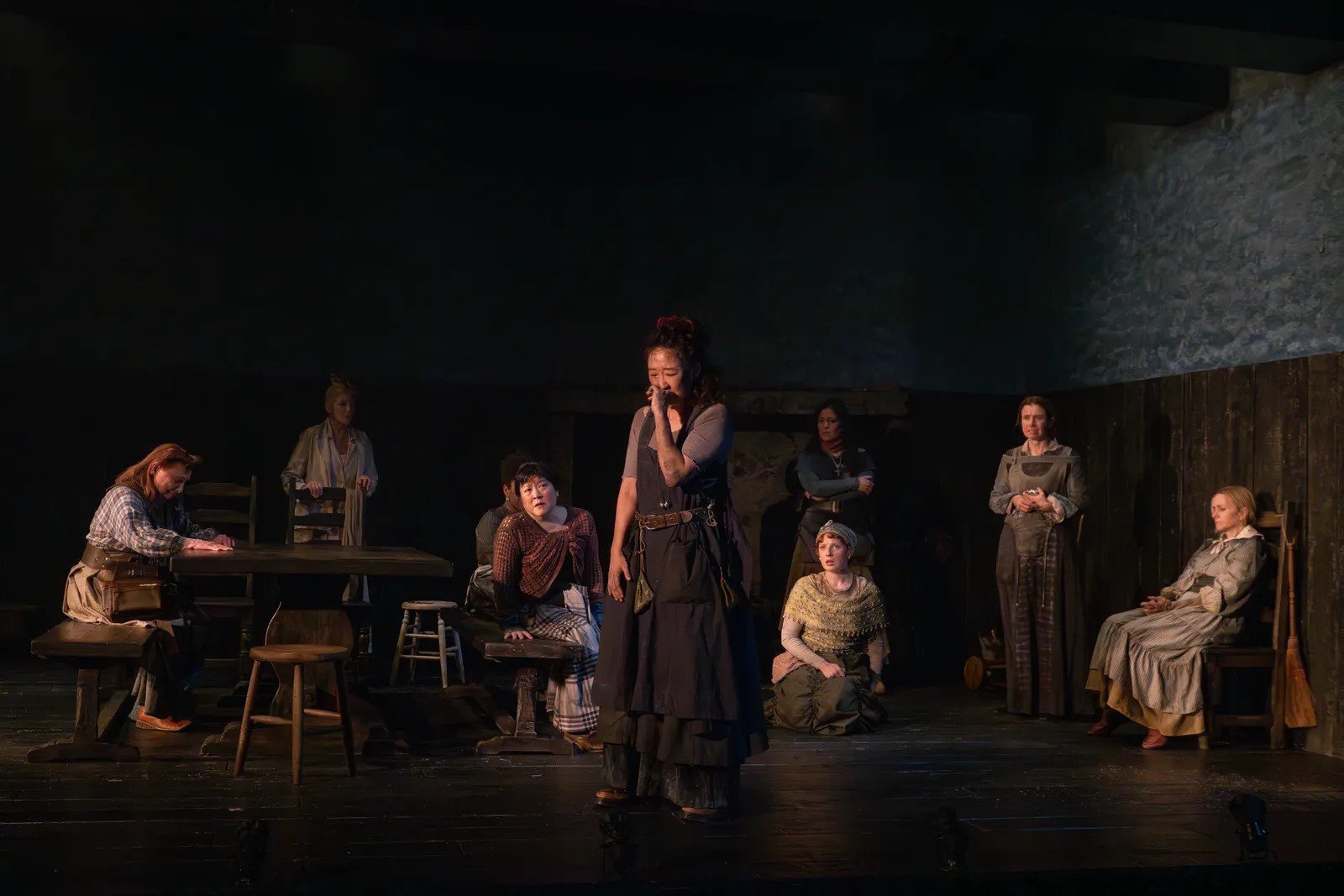
This disjunction is especially true of Wong’s Sally, whose fiercely contemporary edge suggests that she’s emerging from a different play entirely than the other actors. She’s a wildly challenging character—both unrepentantly feral and somehow representative of the consequences of men’s inhuman view of the female body—and it’s Kirkwood’s greatest misstep that her psychological thriller should lack credible psychology from such a central character.
The Welkin seems on surest ground in Kirkwood’s sympathetic portrait of the women’s shared experience of being understood by the men in their lives and on the pulpit and in the courtroom as wombs incidentally attached to human beings. For one, the oldest in the group, Sarah Smith (a delightful Dale Soules), has had “21 children and three husbands, all very satisfactory.” Each woman’s unique and tender, tentative relationship with her own body—a portal for terrible pain and, as refracted through the fragile possibilities of the 1700s, ecstatic pleasure—runs movingly throughout the play. Emily Cass McDonnell especially stands out as the heartbroken Helen Ludlow, who questions whether she really belongs in a room of mothers, as she’s suffered through 12 miscarriages and her only birth was stillborn.
The thin thread between contemporary reproductive rights and this long-retired practice of women judging another’s fertility to determine her judicial fate might be more effective if allowed to hover below the surface. Some late-breaking 21st-century intrusions, staged unsubtly here, hammer the modern-day connections home without sufficient specificity.
And, intentionally complex as Kirkwood keeps this network of working women who form fierce alliances but also backstab, berate, and bully each other mercilessly, it’s never really clear what The Welkin (the title is an old term referring to the heavens—and the play takes place as Halley’s Comet approaches) wants to say about this community, let alone our present day.
It’s the rebellious dignity of Oh’s Lizzy that lives most convincingly between times and places. At one point, Lizzy asks her compatriots to do better than the all-male jury that preceded them, urging them to “think of the women who will be in this room when that comet comes round again, and…how ashamed they will be, that we were given our own dominion and we made it look exactly like the one down there.” Clear-eyed to both the present and the future, Oh’s Lizzy is a poignantly portrayed heroine worthy of a play as deliberate as she is.
The Welkin is now running through June 30 at the Linda Gross Theater.
Since 2001, we've brought you uncompromising, candid takes on the world of film, music, television, video games, theater, and more. Independently owned and operated publications like Slant have been hit hard in recent years, but we’re committed to keeping our content free and accessible—meaning no paywalls or fees.
If you like what we do, please consider subscribing to our Patreon or making a donation.

